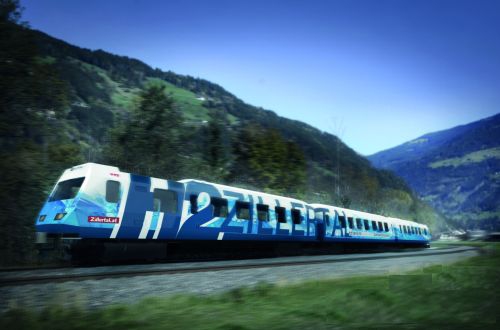Services are currently operated by diesel locomotives and push-pull coaches, and a fleet of DMUs.
The railway consumes around 800,000 litres of diesel annually, and two options have been evaluated with the aim of reducing both operating costs and pollution.
In 2015 Zillertal Railway unveiled plans to electrify the 760mm-gauge line at an estimated cost of €156m including track upgrades and rolling stock. However, the installation of catenary is opposed by some municipalities along the line, which have argued electrification would be visually intrusive.
The railway has therefore decided to move forward with the alternative option, hydrogen fuel cell trains. A total of €80m will be required for new rolling stock and hydrogen fuelling and production facilities, which will use energy supplied by local hydroelectric power stations.
Zillertal Railway will now build a prototype train using the withdrawn Austrian Federal Railways (ÖBB) class 4090 EMUs currently stored at Zell am See.
Following tests, a tender will be launched for the series trains, which should be ready by 2022.

